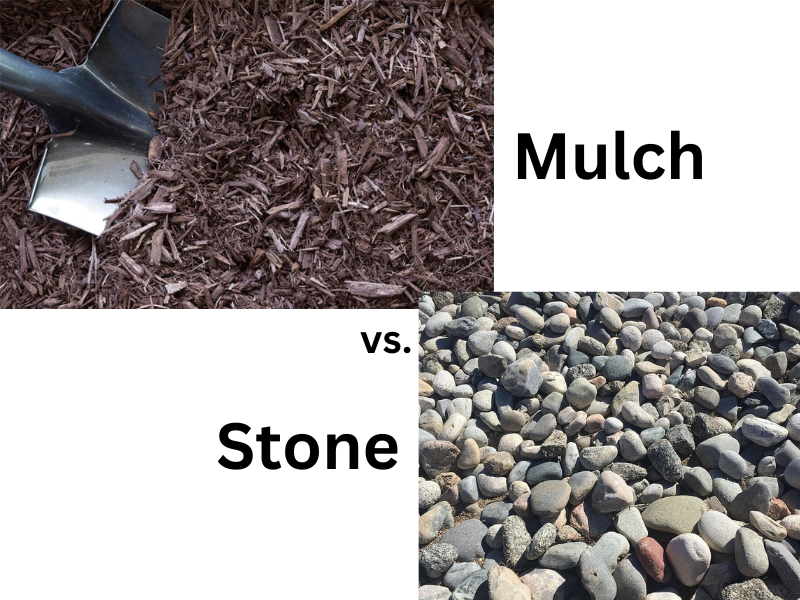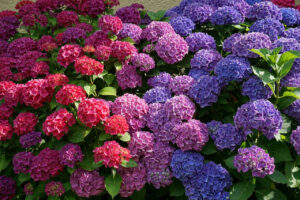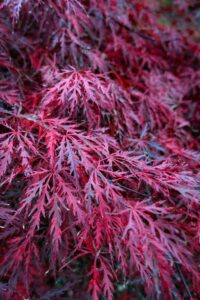Stone vs. Mulch: Choosing the Best Soil-Cover
When choosing the right soil-cover for your landscaping needs, the debate between mulch and stone is common.
Both options have unique features, advantages, and benefits that suit different landscaping. In this article, we will dive deep into the world of stone vs. mulch as soil-covers, exploring the various aspects of each option and highlighting their unique characteristics.
In this article, we will look at the benefits of mulching and how it can be a viable option for your landscaping needs. We will also examine the advantages of using stone vs. mulch and why you might consider landscaping with rocks or mulch.
By the end of this article, you will clearly understand which soil-cover best suits your Jamison landscaping needs and why.
Stone vs. Mulch as Soil-Covers
Mulch, typically made from shredded wood, is a popular and affordable option for many homeowners. Its benefits, beyond aesthetics, include improving soil quality, suppressing weed growth, and retaining moisture.
Learn more: Why Your Garden Beds and Landscape Need Mulch
In contrast, stone landscaping offers a more permanent solution that adds a touch of elegance to any outdoor space. Stones come in various sizes, shapes, and colors, and their low maintenance and durability make them a favorite among some homeowners.
Stone Landscaping Benefits
Natural stone as a soil-cover has many benefits, such as better weed prevention and not getting washed out during heavy rain. You can use stone as a replacement for mulch in your flower beds and other landscapes.
You can also use natural stone and rock to create yard drainage areas or transform them into a rock or rain garden.
Low maintenance
Natural stone is low maintenance. You don’t need to rake it every season to freshen it up, and you don’t need to replace it. When you line your stone beds with landscape fabric, It will prevent the stone from sinking and hold them in place.
Durable and long-lasting
Stone landscaping also lasts for a long time. Unlike mulch that needs to be replaced yearly, the stone will stay the same in your beds for years.
Insect resistant
Stone won’t attract any insects. Wood mulch attracts termites, ants, and even roaches looking for a warm place to nest and food to eat.
Fire-resistant
Stone is fire-resistant and will not feed a fire should one break out on your property.
Drawbacks of Stone as a Soil-Cover
While some homeowners prefer stone over mulch, it’s not a perfect replacement for wood mulch. Here are four cons of stone landscaping:
It costs more than mulch – While stone lasts longer than wood mulch, it costs more than wood mulch upfront.
It can make the soil too hot – Stone doesn’t regulate soil temperature during extreme heat like wood mulch does. Instead, it causes ground temperatures to get too hot. You’ll find that your plants will need more water or drip irrigation to keep them alive during summer heat waves.
It’s challenging to remove – Removing rocks or stones is a pain if you decide to return to regular mulch. You’ll need to remove all the stones, which can be heavy and tedious.
It doesn’t provide nutrients to plants – Other than not eroding and keeping weeds at bay with landscape fabric, stone mulch doesn’t provide any nutrients to your annuals, perennials, shrubs, and trees.
Learn more: Asymmetrical vs. Symmetrical Gardens: Which Landscape Design is Right for You?
Benefits of Mulch as a Soil-Cover
If you want a soil-cover that makes your landscape look tidy and provides nutrients as it breaks down, then you want to stick with wood mulch. As wood mulch breaks down, it puts nutrients back into the soil.
Wood mulch also moderates soil temperature, holds moisture, and controls weeds. It’s inexpensive and aesthetically pleasing—even the scent of fresh mulch can bring a smile to your face.
Drawbacks of Mulch as a Soil-Cover
Mulch has its drawbacks as well. Here are four cons of mulch as a soil-cover:
It needs to be replaced – Every year, you need a fresh mulch application because it breaks down and fades.
It can attract insects and pests – Mulch can become a magnet for different critters, such as ants, termites, and ground bees.
It can wash away in heavy rain – If you put mulch down in a flowerbed with a slight slope, it will wash away in the first heavy rainstorm. Mulch on level ground won’t wash away unless spread too thin.
It requires more maintenance than stone – While mulch deters weeds, it also harbors weed seeds that start to grow through the mulch. It’s not foolproof with weed control.
How Jamison Lawn Care Provides Mulch and Stone Landscaping
No matter which soil-cover you prefer, you can count on Jamison Lawn Care to put down your preferred material—stone or wood mulch. We put weed control down before applying mulch to slow weed growth.
If you’re ready for your stone or mulch installation, book your appointment today at 267-621-4747 or fill out our contact form.
Sources:
FamilyHandyman.com, Mulch vs. Rock: Which Is Best?
LakelandYardandGarden.com, Landscaping with Stone vs. Mulch.
SouthwestStoneSupply.com, The Top 5 Overlooked Benefits of Decorative Rock Landscaping.





